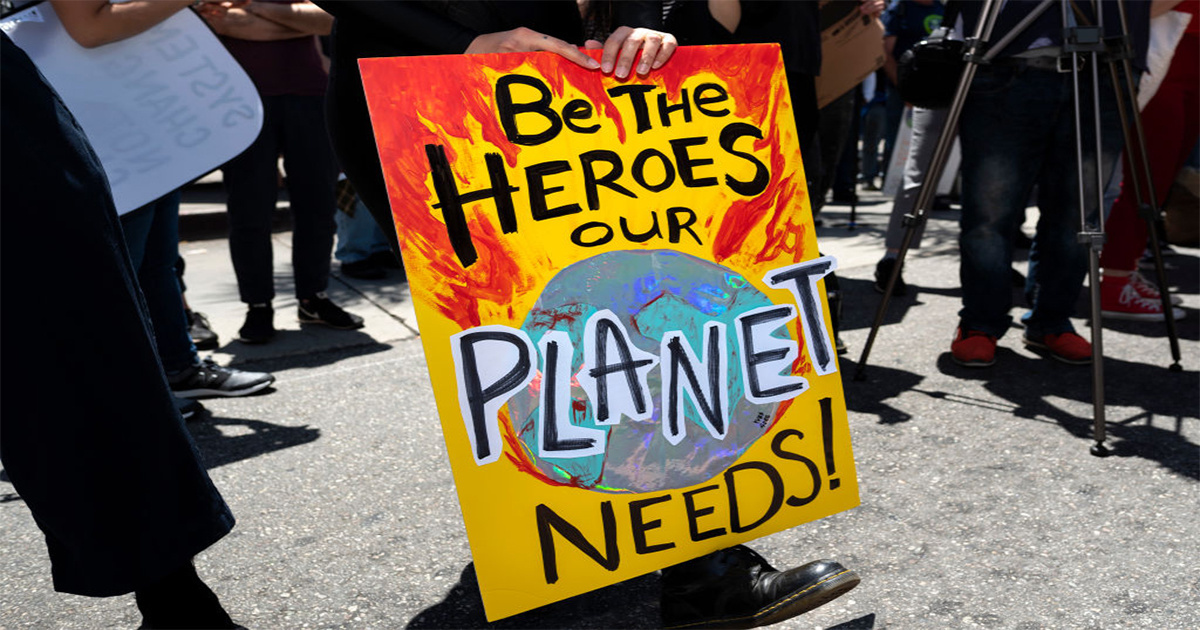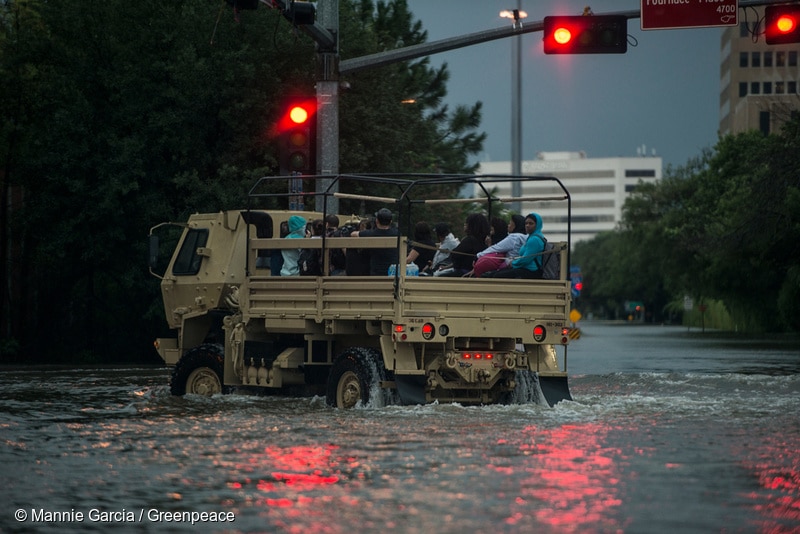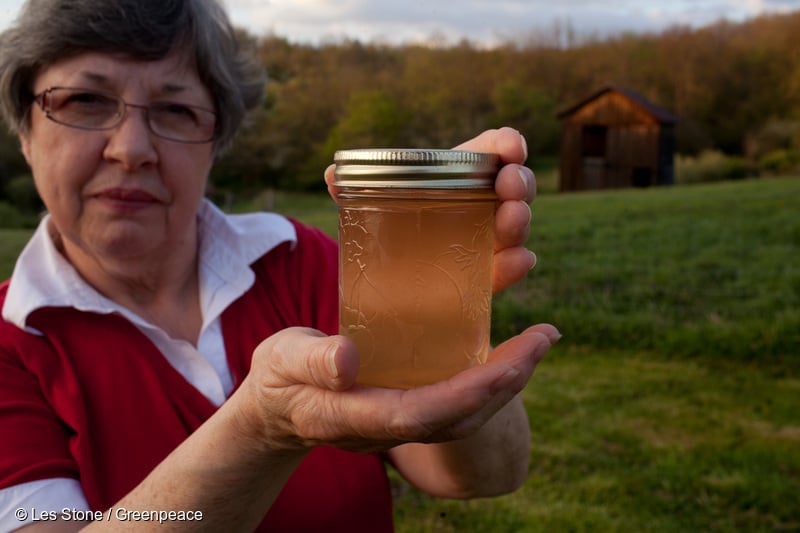

Students and environmental activists participate in a climate strike in Los Angeles, California on May 24. Ronen Tivony / SOPA Images / LightRocket via Getty Images
By Jeremiah Lowery
The climate crisis is comprised of many issues, which require many solutions. Now is the time for presidential candidates to discuss all these issues facing U.S. citizens and our international community.
When I was growing up in the Washington, DC area, many members of my community struggled with not only unemployment, but also with our drinking water containing so much lead it caused Congress to open an investigation.
We had trouble with a myriad of other issues as well, from poor air quality (largely due to the industrial factories in the city) to finding adequate public transportation options to get to the grocery store.
To paraphrase the author and poet Audre Lorde, our collective struggles were not singularly focused, therefore we did not live single-issue lives.

A woman stands at the window of her home looking out at Shell refinery just a couple of yards away, in an area dubbed “Cancer Alley” in Louisiana.
This is the reason I am in the climate movement.
I believe that by building a broad and all-encompassing climate movement, we will be able to tackle many of the issues that members of my community faced.
Addressing our climate crisis means addressing our lack of good paying, sustainable jobs, it means children having clean water to drink, it means reliable public transportation run on renewable energy, and so many other solutions.
Which is why I was very disappointed to read that Tom Perez, chair of the Democratic National Committee, declined to hold a climate debate for the 2020 Democratic presidential candidates because he stated climate is a “single-issue” and debates should cover a broader range of issues besides just climate.

People ride in the back of military trucks as they are evacuated through the flooded streets of Houston after Hurricane Harvey caused record flooding in southeast Texas.
The issues faced by my community clearly show that our climate movement is not a single-issue movement. If you look at other parts of the country you will see communities are facing similar issues because their leaders have not fully grasped or embraced the solutions. Solutions which can be found within the climate movement.
Cities like Flint, Michigan are struggling with the issue of clean water. Yuma County, Arizona is struggling with the issue of high unemployment. Bakersfield, California is struggling with the issue of air pollution. And year after year, communities like those on the coast of Texas are destroyed by hurricanes and flooding.

A woman holds a jar of water from her well, which was contaminated after hydraulic fracturing drilling began near her Washington County farm.
Our climate movement also encompasses international issues as well. Our climate crisis will have a devastating effects on trade, cause massive famine in countries such as Sudan due to flooding of farmland, and overall causes global instability.
We need to know whether or not the next leader of the United States understands the potential that lies within our climate movement to solve many of the pressuring issues facing our world today.
Now is the time for Presidential candidates to discuss all these issues facing U.S. citizens and our international community.
And an effective platform through which citizens can learn about their candidates’ foreign and domestic plans for all these issues is a climate debate.
Tom Perez needs to reconsider his position and the DNC needs to step up to the plate and host a climate debate, because the multiple issues within our climate crisis can no longer be pushed aside. These issues must be addressed if we care about the future stability of our nation.
The issues we are facing are great but our potential is greater. If you believe we need a climate debate now, for all the issues facing our communities, take action and demand it.
Tell Tom Perez that we need a climate debate now and let’s see which presidential candidate has the plans to solve the climate crisis and the multi-issues that comprise it.
- 4 Reasons Why We Need a Climate Debate - EcoWatch
- Youth-Led Petition Urges 2020 Democratic Candidates to Hold ...

 233k
233k  41k
41k  Subscribe
Subscribe 